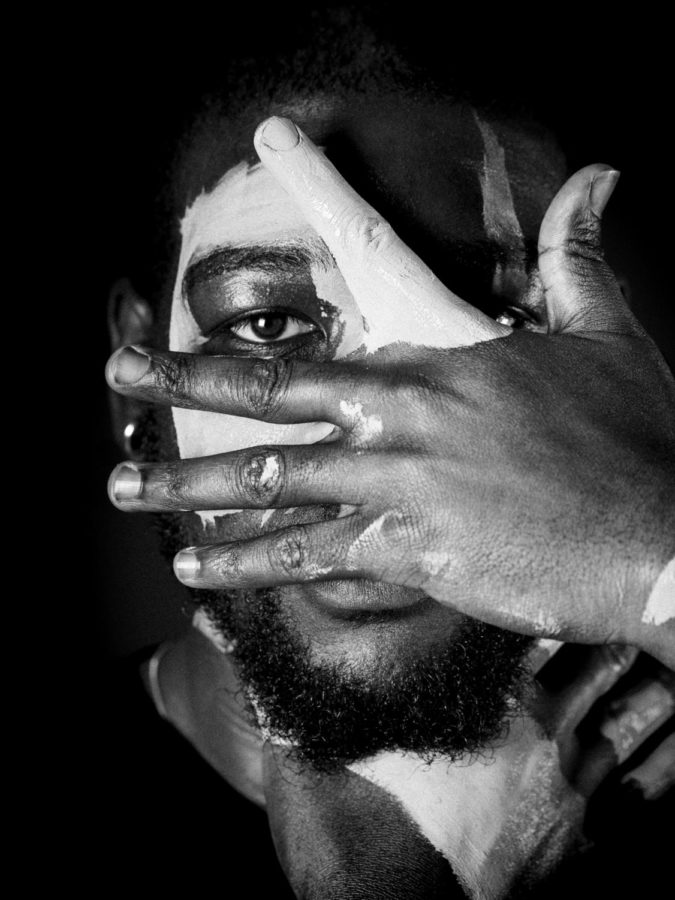Speaking out against racism is risky, but fear will no longer keep me silent
“To America, I am not just a man; I am a Black man. And for years, the baggage of that label kept me afraid and silent,” writes guest columnist Walter Suza.
January 22, 2023
Fear kept me silent. When I was a child in Tanzania, kids from a different tribe would wait for me at the end of the school day to beat me up. The adrenaline rush of fear may have sometimes helped me outrun my nemeses. Yet it also kept me silent.
I feared that if I told anyone at home, my older siblings would try to intervene, which would only make future beatings worse. That was many years ago. The United States is my country now. But I am still afraid. To America, I am not just a man; I am a Black man. And for years, the baggage of that label kept me afraid and silent.
Since coming to the United States as a graduate student, I have been subject to microaggressions and worse. On the first day of my biochemistry class, a white professor asked, “Are you sure you are in the right class?” as I was walking in the door.
Outside a restaurant and sports bar off-campus, a white man called me the N-word. During my postdoctoral training, a white colleague giving a lab tour to a white family of a prospective student asked them, “Have you seen the Black guy?” I assume he did not see me sitting in the corner.
Despite the threats, I continue to write … I have learned that fear need not mean silence.
Despite the grave reality that such dehumanizing language can pave the way for death at the hands of the police and vigilantes, I was afraid to speak about it in public. Professionally, I was afraid if I spoke, potential employers might view me as a troublemaker and I would face greater barriers to pursuing my goal of becoming a tenured professor. Personally, I feared it might jeopardize my chances of being awarded permanent residency and eventually becoming a U.S. citizen. So, I kept my head down and focused on my work and my family.
The stress from not speaking out felt constant and inescapable. I felt trapped inside my own skin.
I was afraid to speak about being followed in grocery stores. I was afraid to speak about a white woman at the park ordering her child not to play with my daughter. I was afraid to speak about being seated in the back of the restaurant when we were the only family there.
I remained silent after a white vigilante shot and killed Trayvon Martin. I remained silent after a white police officer shot and killed Michael Brown. I remained silent after another white police officer shot and killed Tamir Rice.
I moved on to a non–tenure-track faculty position, pleased to be progressing in my career. But, I could not outrun racism. On campus, incidents of white supremacist symbols and racist graffiti were frequently reported. Off campus, I saw the Confederate flag being flown.
Still, I remained silent, unable to overcome my fear. Instead of speaking out, I dove into diversity and inclusion work. I sought professional development to learn how to make my classroom more inclusive, hosted a student from an internship program intended in part to increase diversity and served on department committees to strengthen diversity, equity, inclusion and belonging. I also read about the history of the U.S. civil rights struggle.
Over time, these efforts helped me gain the courage to write about racial and social justice for the student newspaper. Several students and colleagues offered encouraging, supportive responses, which helped reduce my fear of career repercussions. But I was still afraid to speak out to the public at large.
The tipping point came when Ahmaud Arbery was shot dead by white men and George Floyd was choked to death by a white police officer. My anger and despair were nearly overwhelming. I was still afraid. But by that time I had become a U.S. citizen, and I felt I could no longer stay silent. I owed it to myself, and to those who were more vulnerable, to speak out.

So, I started to write opinion columns for local newspapers. Some readers encourage me to keep writing. Some tell me to “get out of my state.” Some make phone calls to my work, calling me a racist. Some send disturbing threats to my home and work. Despite the threats, I continue to write.
I am still a Black man in America with all the resulting challenges and fears. I am still afraid. But, I have learned that fear need not mean silence. Instead, I can channel the adrenaline — not to outrun and escape my fear, but to face it head on, in the hopes that someday I and others like me will no longer have cause to feel afraid.
Reprinted from Science, Vol 378, Issue 6621, 18 November 2022







